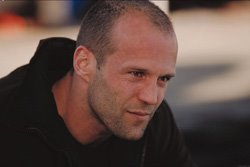Your Type is
INFJ
| Introverted | Intuitive | Feeling | Judging |
| Strength of the preferences % | |||
| 44 | 25 | 12 | 22 |
Other INFJ's:
Nathan, prophet of Israel
Aristophanes
Chaucer
Goethe
Robert Burns, Scottish poet
- U.S. Presidents:
- Martin Van Buren
- James Earl "Jimmy" Carter
Nathaniel Hawthorne
Fanny Crosby, (blind) hymnist
Mother Teresa of Calcutta
Fred McMurray (My Three Sons)
Shirley Temple Black, child actor, ambassador
Martin Luther King, Jr., civil rights leader, martyr
James Reston, newspaper reporter
Shirley McClain (Sweet Charity, ...)
Piers Anthony, author ("Xanth" series)
Michael Landon (Little House on the Prairie)
Tom Selleck
John Katz, critic, author
Paul Stookey (Peter, Paul and Mary)
U. S. Senator Carol Moseley-Braun (D-IL)
Billy Crystal
Garry Trudeau (Doonesbury)
Nelson Mandela
Mel Gibson
Carrie Fisher
Nicole Kidman
Jamie Foxx
Sela Ward
Mark Harmon
Gary Dourdan
Marg Helgaberger
Evangeline Lilly
Tori May
INFJs are distinguished by both their complexity of character and the unusual range and depth of their talents. Strongly humanitarian in outlook, INFJs tend to be idealists, and because of their J preference for closure and completion, they are generally "doers" as well as dreamers. This rare combination of vision and practicality often results in INFJs taking a disproportionate amount of responsibility in the various causes to which so many of them seem to be drawn.
INFJs are deeply concerned about their relations with individuals as well as the state of humanity at large. They are, in fact, sometimes mistaken for extroverts because they appear so outgoing and are so genuinely interested in people -- a product of the Feeling function they most readily show to the world. On the contrary, INFJs are true introverts, who can only be emotionally intimate and fulfilled with a chosen few from among their long-term friends, family, or obvious "soul mates." While instinctively courting the personal and organizational demands continually made upon them by others, at intervals INFJs will suddenly withdraw into themselves, sometimes shutting out even their intimates. This apparent paradox is a necessary escape valve for them, providing both time to rebuild their depleted resources and a filter to prevent the emotional overload to which they are so susceptible as inherent "givers." As a pattern of behavior, it is perhaps the most confusing aspect of the enigmatic INFJ character to outsiders, and hence the most often misunderstood -- particularly by those who have little experience with this rare type.
Due in part to the unique perspective produced by this alternation between detachment and involvement in the lives of the people around them, INFJs may well have the clearest insights of all the types into the motivations of others, for good and for evil. The most important contributing factor to this uncanny gift, however, are the empathic abilities often found in Fs, which seem to be especially heightened in the INFJ type (possibly by the dominance of the introverted N function).
This empathy can serve as a classic example of the two-edged nature of certain INFJ talents, as it can be strong enough to cause discomfort or pain in negative or stressful situations. More explicit inner conflicts are also not uncommon in INFJs; it is possible to speculate that the causes for some of these may lie in the specific combinations of preferences which define this complex type. For instance, there can sometimes be a "tug-of-war" between NF vision and idealism and the J practicality that urges compromise for the sake of achieving the highest priority goals. And the I and J combination, while perhaps enhancing self-awareness, may make it difficult for INFJs to articulate their deepest and most convoluted feelings.
Usually self-expression comes more easily to INFJs on paper, as they tend to have strong writing skills. Since in addition they often possess a strong personal charisma, INFJs are generally well-suited to the "inspirational" professions such as teaching (especially in higher education) and religious leadership. Psychology and counseling are other obvious choices, but overall, INFJs can be exceptionally difficult to pigeonhole by their career paths. Perhaps the best example of this occurs in the technical fields. Many INFJs perceive themselves at a disadvantage when dealing with the mystique and formality of "hard logic", and in academic terms this may cause a tendency to gravitate towards the liberal arts rather than the sciences. However, the significant minority of INFJs who do pursue studies and careers in the latter areas tend to be as successful as their T counterparts, as it is *iNtuition* -- the dominant function for the INFJ type -- which governs the ability to understand abstract theory and implement it creatively.




